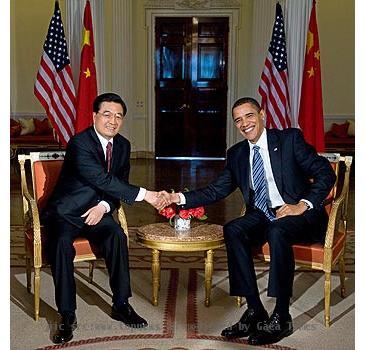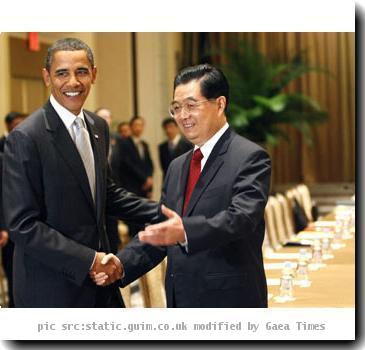China leaders, taking recipe from Tibet, hope to solve Xinjiang tensions with development
By APThursday, May 20, 2010
China hopes development solves region’s tensions
BEIJING — China’s leaders said faster economic development is the needed medicine for one of its most restive regions, announcing a plan Thursday that resembles efforts already under way in equally tense Tibet.
The Xinjiang region was the site of last July’s deadly rioting that was China’s worst ethnic violence in decades and left nearly 200 dead.
President Hu Jintao and other leaders urged an approach to the region that combines heavy-duty investment with “ethnic harmony,” state media reports said.
“Only by resolving the issues of the people’s livelihood can we better bring together the hearts, the knowledge and the strength of the people for Xinjiang’s long-term economic development,” said a People’s Daily editorial, quoted by the official Xinhua News Agency.
China has taken the same approach in Tibet, where it has poured billions of dollars for economic development despite concerns that the influx of the majority ethnic Han Chinese threatens Tibet’s Buddhist culture and traditional way of life.
The announcement of the Xinjiang work meeting, which ended Wednesday, comes shortly after the government announced plans to inject nearly $1.5 billion into the region, starting next year. The investment aims to turn the region into a “well-off society” within 10 years and maintain long-term stability, state media reports said.
Already, a decades-long influx of Han Chinese has led Xinjiang’s ethnic Uighurs, a Turkic-speaking minority group, to complain they have been marginalized.
The friction has led to violence over the years.
The United States brought up Xinjiang as an issue of concern in its human rights talks with Chinese officials last week in Washington.
Chinese experts have said the new development plan, if successful, will help ease potential unrest.
The Uighurs (pronounced WEE-gurs) see Xinjiang as their homeland and resent the Han Chinese, saying they have unfairly benefited from the riches of the strategically vital region with significant oil and gas deposits.
Han Chinese in Xinjiang accuse Uighurs of being more concerned with religion than business, and unfairly favored by quotas for government jobs and university places.
China blames last year’s rioting on overseas-based groups agitating for greater Uighur rights in Xinjiang, but has presented no direct evidence.
The region was smothered in heavy security following the violence, and Internet access to the region was fully restored only this month.
China’s leaders recently replaced Xinjiang’s unpopular Communist Party boss, Wang Lequan, who came under criticism during last year’s rioting.
Tags: Asia, Beijing, China, East Asia, Greater China, Hu Jintao, Race And Ethnicity, Tibet

